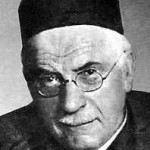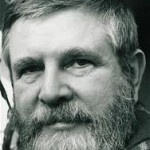Often the question is asked. “Are you a Freudian or Jungian or Adlerian or Rogerian or a Self-Psychologist or Ericksonian or just what do you base your practice on?” Even though the one asking the question may not fully appreciate their own question, they imply an underlying understanding that theory matters. I could not agree more.
My approach to the psyche is based fundamentally on 1) Jungian Psychology and more specifically on 2) Neo-Jungian psychology. On this underlying basis, I take an “integrative” approach to treatment, generally using the theory and techniques that I have found to best match the presenting problem or situation. However, I also use the term “integrative” in a much more specific context: I use an integrative approach that refers specifically to the 3) integration of the structures of the psyche based on these theoretical approaches. Below I explain each of these three concepts in more detail.

Analytical psychology (or Jungian psychology) is the school of psychology originating from the ideas of Swiss psychiatrist Carl Jung. His theoretical orientation has been advanced by his students and other thinkers who followed in his tradition. Though they share similarities, analytical psychology is distinct from Freudian psychoanalysis. Its aim is wholeness through the integration of unconscious forces and motivations underlying human behavior. Depth psychology, including Neo-Jungian psychology, employs the model of the unconscious mind as the source of healing and development in an individual. Jung saw the psyche as mind, but also admits the mystery of soul, and used as empirical evidence the practice of an accumulative phenomenology around the significance of dreams, archetypes and mythology.
Neo-Jungian Psychology is the theory of psychology that is based in Analytical Psychology and incorporates the ideas and discoveries of Dr. Robert L. Moore. I tend to use Neo-Jungian Psychology as the primary basis for my practice. The following are links to Dr. Moore’s web site where his theory is treated in some detail:
Overview of Terms and Concepts

Introduction
Jungian Studies
Archetype Defined
Archetypal Structures
Theory and Discoveries
The Great Code
Structures of the Self
The Human Self
Male and Female Differences
The Four Initiations
The Journey to the Center
Role of the Elder
In 1995, Dr. Moore presented these ideas in an address that he gave to the New Warrior Network (now known as the ManKind Project). To see the full transcription of this address click on: Masculine Initiation for the 21st Century.
In a general sense, Integrative Psychotherapy is taken to mean the fusion of treatments from a variety of theories, a sort of “best of breed” approach. This can work well, based on the presenting symptoms.
In the context of Jungian/Neo-Jungian psychology, however, “integrative psychotherapy” takes on a much more specific meaning. In this type of therapy clients work to correct the structural flaws in the integration of their system-self which have been discerned during the diagnostic and assessment process. These structural imbalances and related problems in accessing, channeling, and regulating archetypal energies underlie their experience of symptoms, relational difficulties, and problems in professional performance. The goal is to move beyond the specific developmental impasse that has prevented more adequate integration of the personality system and better utilization of the client’s gifts and personality potentials. In this form of therapeutic work clients develop the necessary personal and spiritual resources needed for that movement.
More simply put, together we assess how you are doing in your life in each of the key archetypal areas, King/Queen, Warrior, Magician, and Lover. We then work to strengthen the weaker ones and harness the power of the stronger ones to create a functioning balance. We then work to improve the effectiveness of this newly-integrated psyche.